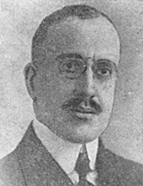

António Ferrão produced a rich and varied bibliography, which he summarised in his Curriculum Vitae, printed in 1933 (when he was approaching fifty years old). His work focused on history, archival technology, bibliography, library technology, criticism of sources and historical facts, as well as the theory and genetic methodology of sources and documentary history. In addition to this, his administrative work, collaborations with magazines and newspapers such as O Século [The Century], Diário de Notícias [Daily News] and Diário de Lisboa [Lisbon Daily], as well as his scientific communications, conferences and public courses, are noteworthy.
His educational background was exemplary: he completed a full secondary school education, followed by a general and diplomatic course as a regular student on the Curso Superior de Letras [Higher Course of Arts and Humanities]. He also pursued a secondary teaching course, preparing him to teach in the Geography, History and Philosophy group, and earned a bachelor's degree in historical sciences. Additionally, he passed a public examination for the teaching of history at the Faculdade de Letras [School of Arts and Humanities] in Lisbon.
By 1933, Ferrão was a full member of the Lisbon Geographical Society, having served as vice-president of several sections (Art, Literature, History and Geography). He was successively appointed as a corresponding member (1921), full member (1925) and member of merit (1953) of the Academia das Ciências de Lisboa [Lisbon Academy of Sciences], where he served as inspector of the library, founder of the historical museum and director of the documentary collection Corpo Diplomático Português [Portuguese Diplomatic Corps], originally published by Rebelo da Silva in 1862 in its second edition (the first edition was published in 1846). He was also a founding member of the Academia das Ciências de Portugal [Academy of Sciences of Portugal] and a foreign correspondent of both the Geographical Society of Madrid and the Academy of History in the same city (1924-1925).
